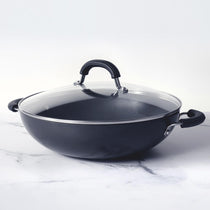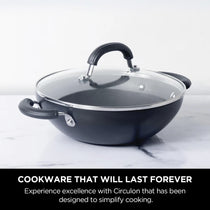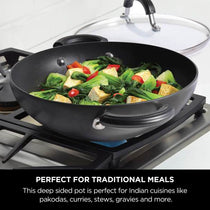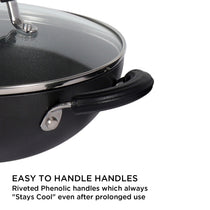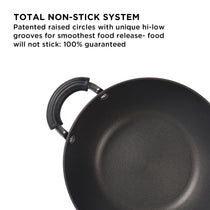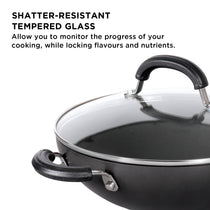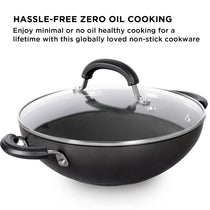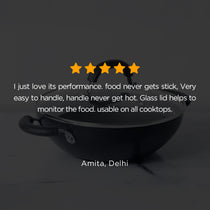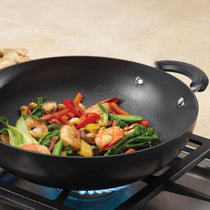PRODUCT DESCRIPTION
Innovations to simply cooking
Pioneer in the cookware industry with over 38 years’ experience of innovation, testing, researching and refining, Circulon Origins has been designed to make cooking smarter. This range by Circulon suits every cooking style and fits every kitchen.

TOTAL Non-stick System
Metal utensil safe interior features the TOTAL Non-stick System of raised circles and premium-quality non-stick. The unique hi-low grooves reduce surface abrasion, resist scratching, staining and chipping, making the non-stick coating exceptionally durable. Owing to its distinguished raised circles, air can flow around food effortlessly to give better cooking result.

Hassle-Free Zero Oil Cooking
The cookware features high-quality non-stick coating that allows you to cook with little or no oil and deliver flawless food release along with the easiest of clean-ups every time.

Heavy Gauge Hard Anodised Construction
Circulon is catalysed for optimal conductivity with aluminium core that is twice as strong as stainless steel. The heavy-gauge, hard anodised construction ensures fast, even heating – eliminating the hot spots that can burn foods while providing better browning and searing.












